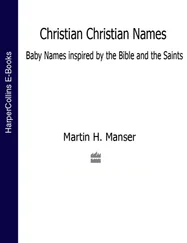5. But if any one thinks that these stories are false, I do not strongly insist on them. For, as I am dealing with Christians who profess to understand the Scriptures without any directions from man (and if the fact be so, they boast of a real advantage, and one of no ordinary kind), they must surely grant that every one of us learnt his own language by hearing it constantly from childhood, and that any other language we have learnt,—Greek, or Hebrew, or any of the rest,—we have learnt either in the same way, by hearing it spoken, or from a human teacher. Now, then, suppose we advise all our brethren not to teach their children any of these things, because on the outpouring of the Holy Spirit the apostles immediately began to speak the language of every race; and warn every one who has not had a like experience that he need not consider himself a Christian, or may at least doubt whether he has yet received the Holy Spirit? No, no; rather let us put away false pride and learn whatever can be learnt from man; and let him who teaches another communicate what he has himself received without arrogance and without jealousy. And do not let us tempt Him in whom we have believed, lest, being ensnared by such wiles of the enemy and by our own perversity, we may even refuse to go to the churches to hear the gospel itself, or to read a book, or to listen to another reading or preaching, in the hope that we shall be carried up to the third heaven, “whether in the body or out of the body,” as the apostle says, 1and there hear unspeakable words, such as it is not lawful for man to utter, or see the Lord Jesus Christ and hear the gospel from His own lips rather than from those of men.
6. Let us beware of such dangerous temptations of pride, and let us rather consider the fact that the Apostle Paul himself, although stricken down and admonished by the voice of God from heaven, was yet sent to a man to receive the sacraments and be admitted into the Church; 2and that Cornelius the centurion, although an angel announced to him that his prayers were heard and his alms had in remembrance, was yet handed over to Peter for instruction, and not only received the sacraments from the apostle’s hands, but was also instructed by him as to the proper objects of faith, hope, and love. 3And without doubt it was possible to have done everything through the instrumentality of angels, but the condition of our race would have been much more degraded if God had not chosen to make use of men as the ministers of His word to their fellow-men. For how could that be true which is written, “The temple of God is holy, which temple ye are,” 4if God gave forth no oracles from His human temple, but communicated everything that He wished to be taught to men by voices from heaven, or through the ministration of angels? Moreover, love itself, which binds men together in the bond of unity, would have no means of pouring soul into soul, and, as it were, mingling them one with another, if men never learnt anything from their fellow-men.
7. And we know that the eunuch who was reading Isaiah the prophet, and did not understand what he read, was not sent by the apostle to an angel, nor was it an angel who explained to him what he did not understand, nor was he inwardly illuminated by the grace of God without the interposition of man; on the contrary, at the suggestion of God, Philip, who did understand the prophet, came to him, and sat with him, and in human words, and with a human tongue, opened to him the Scriptures. 5Did not God talk with Moses, and yet he, with great wisdom and entire absence of jealous pride, accepted the plan of his father-in-law, a man of an alien race, for ruling and administering the affairs of the great nation entrusted to him? 6For Moses knew that a wise plan, in whatever mind it might originate, was to be ascribed not to the man who devised it, but to Him who is the Truth, the unchangeable God.
8. In the last place, every one who boasts that he, through divine illumination, understands the obscurities of Scripture, though not instructed in any rules of interpretation, at the same time believes, and rightly believes, that this power is not his own, in the sense of originating with himself, but is the gift of God. For so he seeks God’s glory, not his own. But reading and understanding, as he does, without the aid of any human interpreter, why does he himself undertake to interpret for others? Why does he not rather send them direct to God, that they too may learn by the inward teaching of the Spirit without the help of man? The truth is, he fears to incur the re
proach: “Thou wicked and slothful servant, thou oughtest to have put my money to the exchangers.” 7Seeing, then, that these men teach others, either through speech or writing, what they understand, surely they cannot blame me if I likewise teach not only what they understand, but also the rules of interpretation they follow. For no one ought to consider anything as his own, except perhaps what is false. All truth is of Him who says, “I am the truth.” 8For what have we that we did not receive? and if we have received it, why do we glory, as if we had not received it? 9
9. He who reads to an audience pronounces aloud the words he sees before him: he who teaches reading, does it that others may be able to read for themselves. Each, however, communicates to others what he has learnt himself. Just so, the man who explains to an audience the passages of Scripture he understands is like one who reads aloud the words before him. On the other hand, the man who lays down rules for interpretation is like one who teaches reading, that is, shows others how to read for themselves. So that, just as he who knows how to read is not dependent on some one else, when he finds a book, to tell him what is written in it, so the man who is in possession of the rules which I here attempt to lay down, if he meet with an obscure passage in the books which he reads, will not need an interpreter to lay open the secret to him, but, holding fast by certain rules, and following up certain indications, will arrive at the hidden sense without any error, or at least without falling into any gross absurdity. And so although it will sufficiently appear in the course of the work itself that no one can justly object to this undertaking of mine, which has no other object than to be of service, yet as it seemed convenient to reply at the outset to any who might make preliminary objections, such is the start I have thought good to make on the road I am about to traverse in this book.
1.2 Cor. xii. 2-4.
2.Acts ix. 3.
3.Acts x.
4.1 Cor. iii. 17.
5.Acts viii. 26.
6.Ex. xviii. 13.
7.Matt. xxv. 26, 27.
8.John xiv. 6.
9.1 Cor. iv. 7.
Table of Contents
Containing a General View of the Subjects Treated in Holy Scripture.
————————————
Argument—The author divides his work into two parts, one relating to the discovery, the other to the expression, of the true sense of scripture. He shows that to discover the meaning we must attend both to things and to signs, as it is necessary to know what things we ought to teach to the Christian people, and also the signs of these things, that is, where the knowledge of these things is to be sought. In this first book he treats of things, which he divides into three classes,—things to be enjoyed, things to be used, and things which use and enjoy. The only object which ought to be enjoyed is the triune God, who is our highest good and our true happiness. We are prevented by our sins from enjoying God; and that our sins might be taken away, “the word was made flesh,” our Lord suffered, and died, and rose again, and ascended into heaven, taking to himself as his bride the church, in which we receive remission of our sins. And if our sins are remitted and our souls renewed by grace, we may await with hope the resurrection of the body to eternal glory; if not, we shall be raised to everlasting punishment. These matters relating to faith having been expounded, the author goes on to show that all objects, except God, are for use; for, though some of them may be loved, yet our love is not to rest in them, but to have reference to God. And we ourselves are not objects of enjoyment to God; he uses us, but for our own advantage. He then goes on to show that love—the love of God for his own sake and the love of our neighbor for God’s sake—is the fulfillment and the end of all Scripture. After adding a few words about hope, he shows, in conclusion, that faith, hope, and love are graces essentially necessary for him who would understand and explain aright the Holy Scriptures.
Читать дальше












